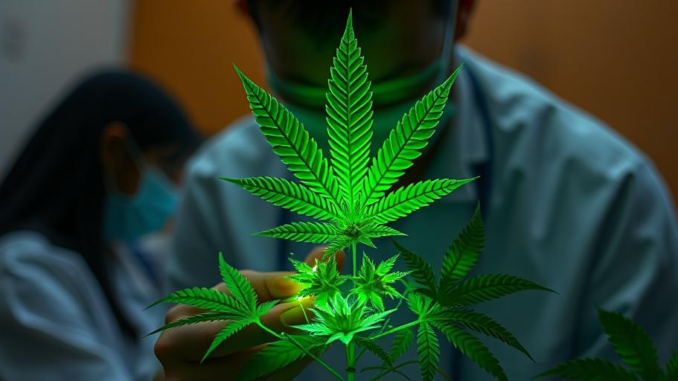
Summary
This article discusses the concerning rise of delta-8-THC use among 12th graders, as revealed by a 2023 study. It explores the potential health risks, legal ambiguities, and the urgent need for greater awareness and stricter regulations. Finally, the article also touches upon recovery programs for addiction.
** Main Story**
Okay, so have you seen this recent study about Delta-8 use among high schoolers? It’s kind of alarming, actually.
They found that over 11% of 12th graders have used Delta-8 in the past year. Which just, highlights how we need to get on top of this, with better education, stricter rules, and, of course, more resources for recovery.
The Delta-8 Dilemma: Legal Loopholes
See, Delta-8-THC is psychoactive, like Delta-9, the stuff in regular marijuana. But, because of some loophole in the 2018 Farm Bill, it’s in this weird legal gray zone. It’s derived from hemp, and that’s what makes it… sort of legal.
And what happens as a result? Well, it’s everywhere. You can find it in gas stations, vape shops, online – no real age restrictions in many places. That’s a problem, a big problem. Especially when you think about how vulnerable young brains are to this stuff.
The Potential Pitfalls
Look, we’re still learning about Delta-8, but, what we do know is, the similarities to Delta-9 are concerning. There’s a chance for long-term health issues. Experts, like my friend Sarah who is a neuropsychologist, are worried it could mess with brain development, lead to addiction, and even cause accidental overdoses.
Plus, and this is a big one, there’s little to no regulation in production. You don’t know exactly what you’re getting, it could have contaminants. It’s the wild west out there, and no one is really watching.
Regional Trends & Regulatory Responses
Now, it gets even more interesting. The study showed Delta-8 use is higher in the South and Midwest, and lower in the West. Which does make sense.
And this part is key: it’s higher in states without Delta-8 regulations or legal recreational marijuana. Meaning, maybe if you regulate marijuana well, or put rules on Delta-8, you can curb its use among teens. Seems logical, right? But implementing it is the hard part, isn’t it?
Time for Action
So, what do we do? First, we need to raise awareness. Tell teens and parents about the risks of Delta-8. That’s number one on the list. It won’t solve the problem by itself, but its an important first step.
Next, we need to tighten the rules. Age restrictions, marketing regulations, production standards – the whole nine yards. We have to limit access for kids. And, we need more research. What are the long-term effects of Delta-8? We need data to inform prevention strategies.
Recovery is Key
Of course, some people are already struggling with Delta-8. So, what about them? They need help. Access to quality addiction recovery programs is crucial.
These programs can offer everything from detox to therapy, helping people get their lives back on track. It’s not a one-size-fits-all kind of thing, though.
Options for Recovery
There’s outpatient programs, where you live at home and go to therapy. Then there’s intensive outpatient programs (IOPs) for more structured care. And partial hospitalization programs (PHPs) for even more support. Then, if you really need it, there’s residential treatment, a 24/7 supportive environment.
Support Doesn’t Stop After Treatment
The journey to recovery doesn’t end when you finish a program. Aftercare, alumni programs, support groups like AA and NA – these are vital. They give you a community, a safe place to share your experiences. And that connection, that feeling of belonging, is huge.
Finding the Right Support
So where do you find all this? SAMHSA has a helpline that connects you to treatment facilities. The Salvation Army, for instance, runs rehab centers. And there’s tons of online resources and support groups, you know?
Look, if you or someone you know needs help with addiction, please, reach out. Don’t hesitate. There are people who care and resources available to help. It’s a tough road, but you don’t have to walk it alone.


Be the first to comment